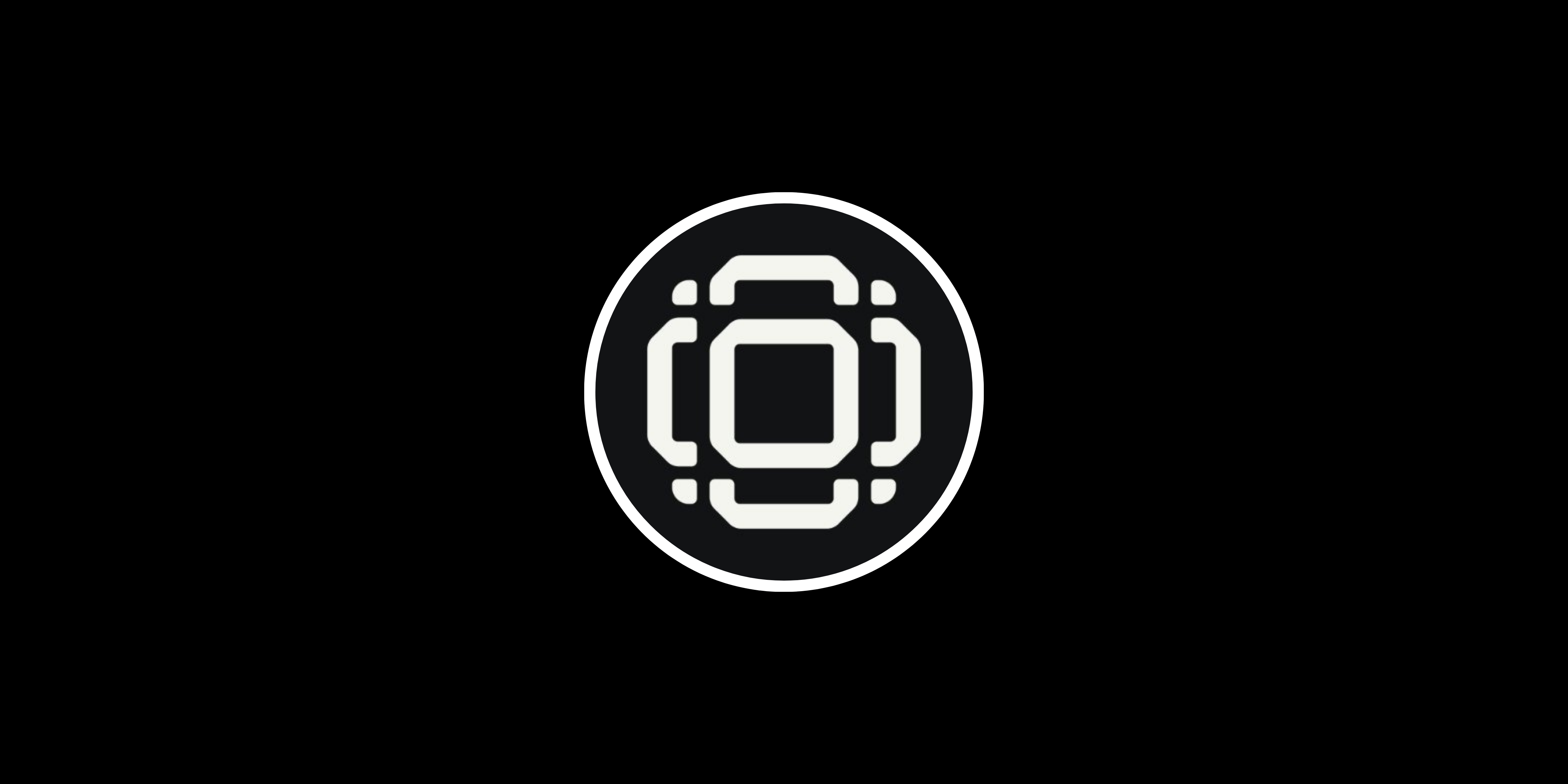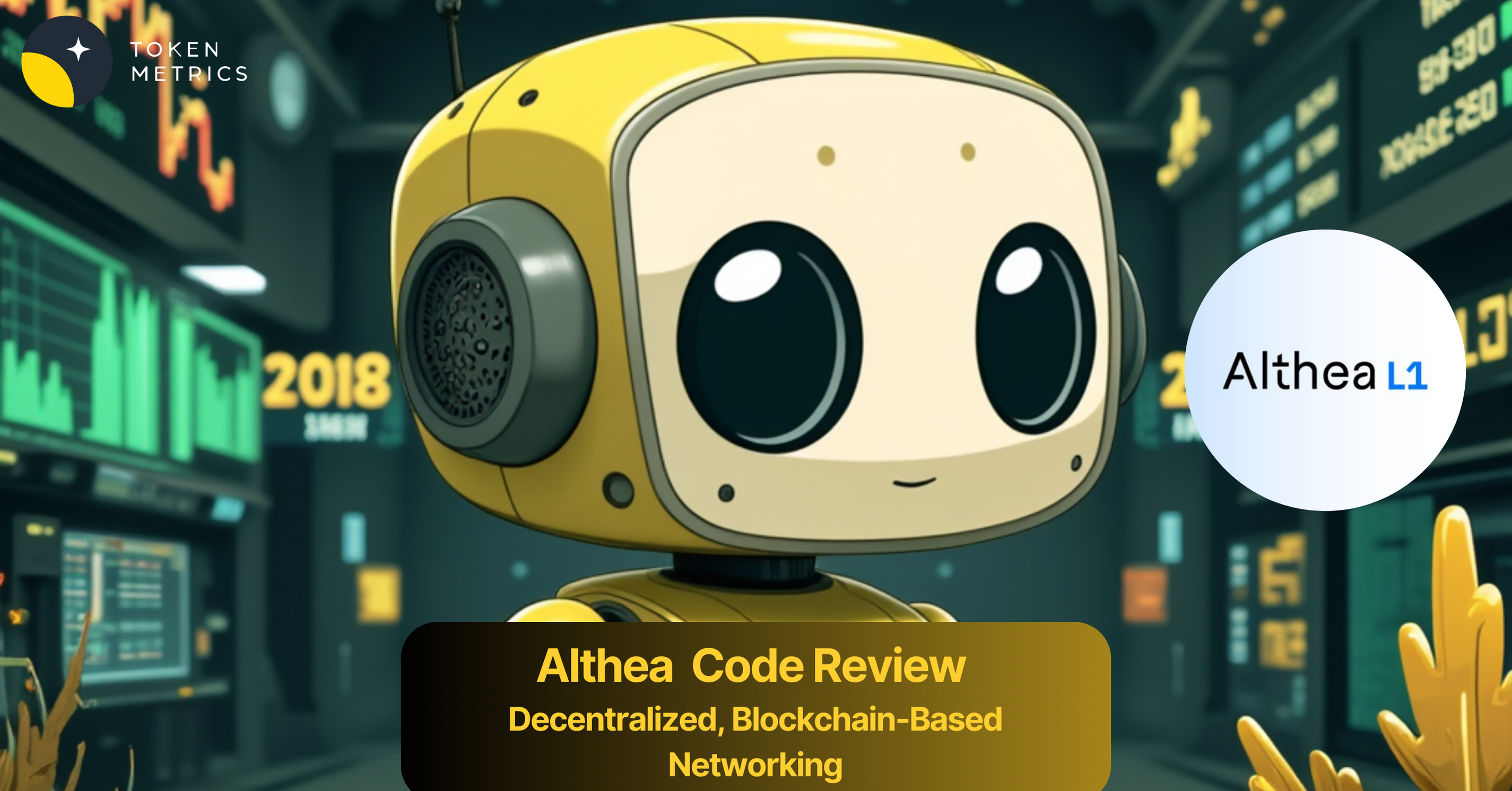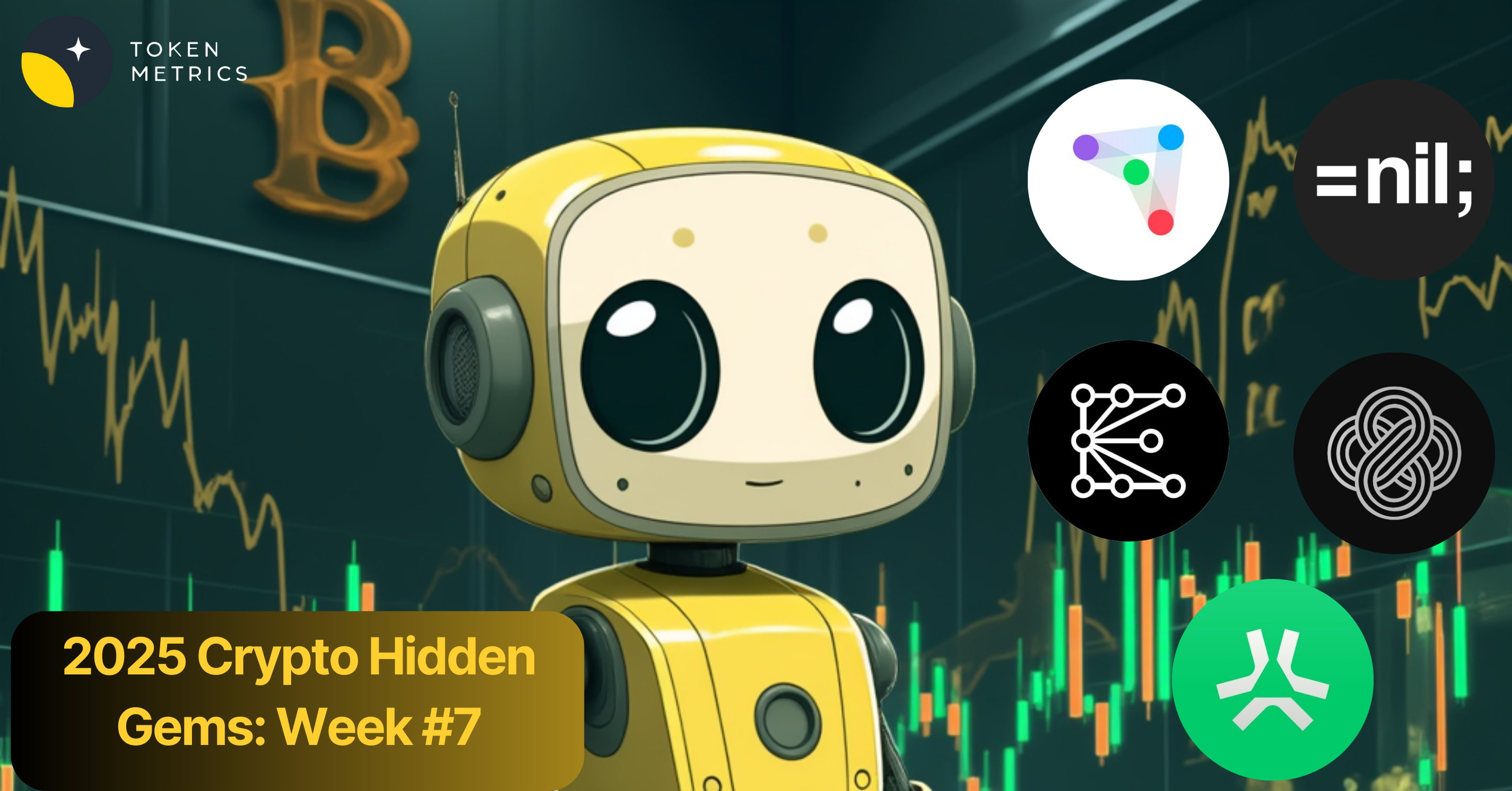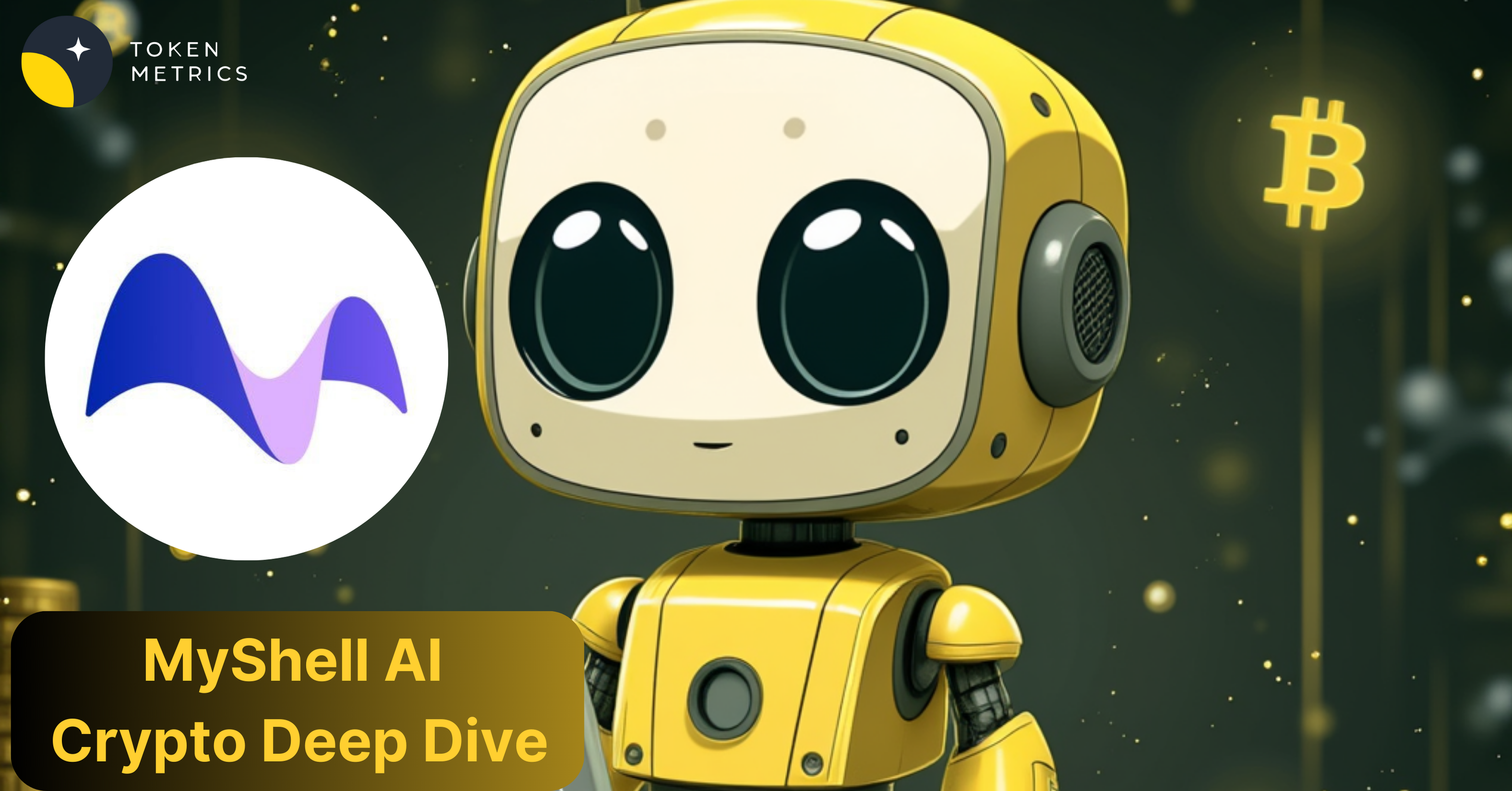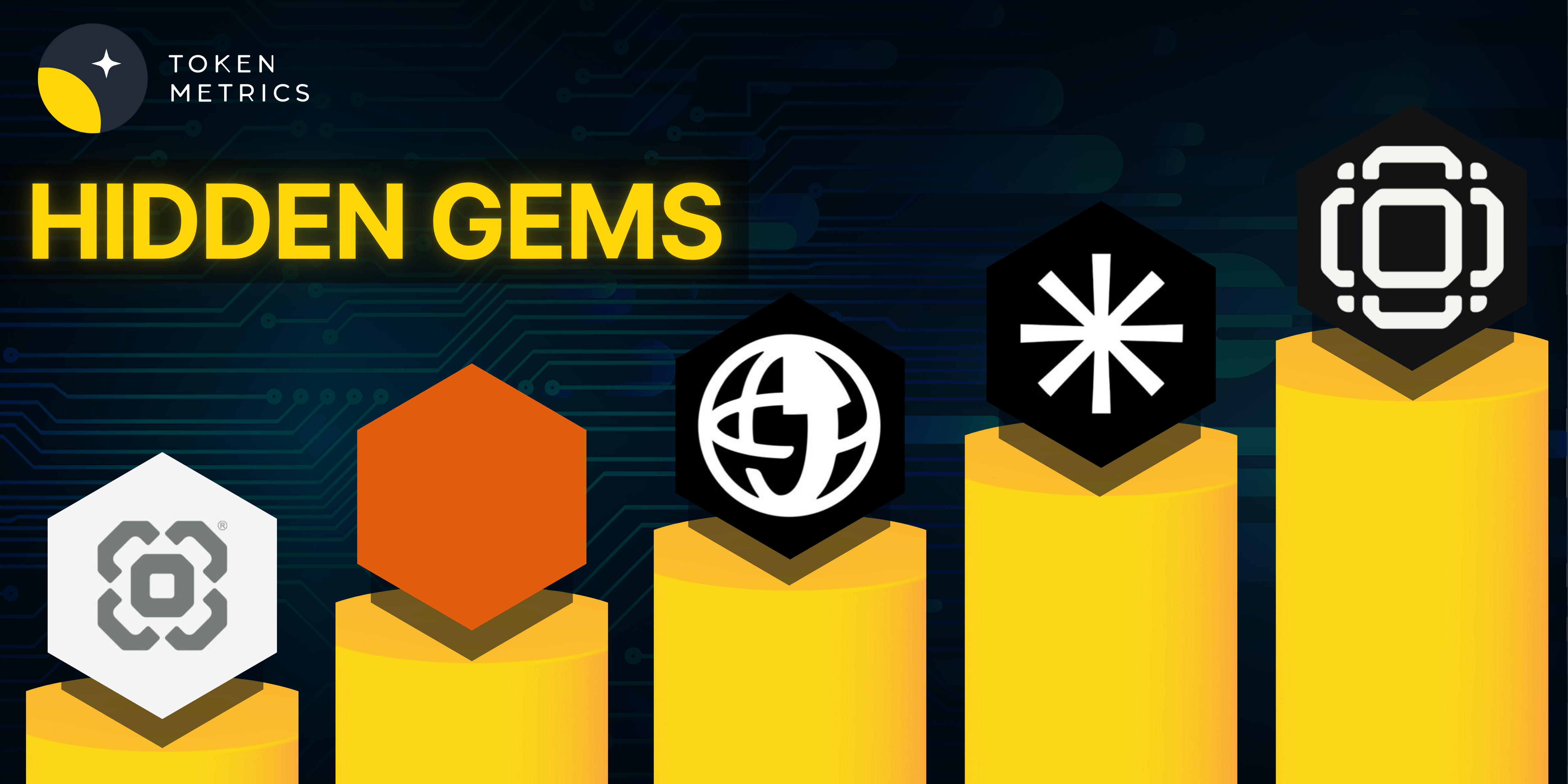GaiaNet represents a decentralized computing infrastructure designed to empower individuals and businesses in the creation, deployment, scaling, and monetization of AI agents that embody their unique styles and expertise. Each node within the GaiaNet network features a web-based chatbot interface and an OpenAI-compatible API, facilitating seamless integration with existing AI applications. The architecture of GaiaNet ensures that domains effectively balance loads across nodes, thereby providing stable and tailored AI services that cater to specific domains and user requirements.
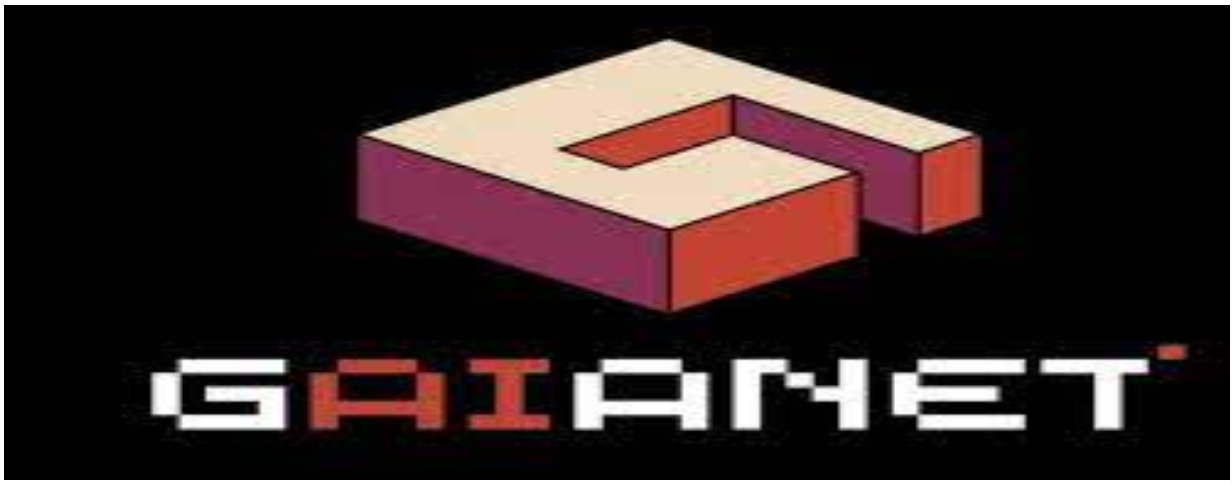
About the Project
Vision
GaiaNet envisions a future where artificial intelligence is democratized, accessible to all individuals and businesses, and free from the constraints of centralized control. The platform empowers users to create, manage, and monetize AI agents that reflect their unique knowledge and expertise. GaiaNet seeks to transform the AI landscape into a collaborative ecosystem that enhances user privacy and creativity by fostering innovation, transparency, and ethical practices in AI development.
Problem
Today’s AI landscape is predominantly shaped by centralized systems, introducing several critical challenges. These include data privacy concerns, as sensitive information is often stored and processed on single servers, risking user confidentiality. Additionally, many existing AI solutions lack customization, resulting in generic responses that fail to meet specific user requirements. Centralized platforms also create vendor lock-in, limiting users’ control over their data and applications. Furthermore, the dominance of major technology companies restricts equitable access, stifling innovation and competition for smaller developers and businesses. These challenges collectively impede the broader adoption of AI technologies across diverse industries.
Solution
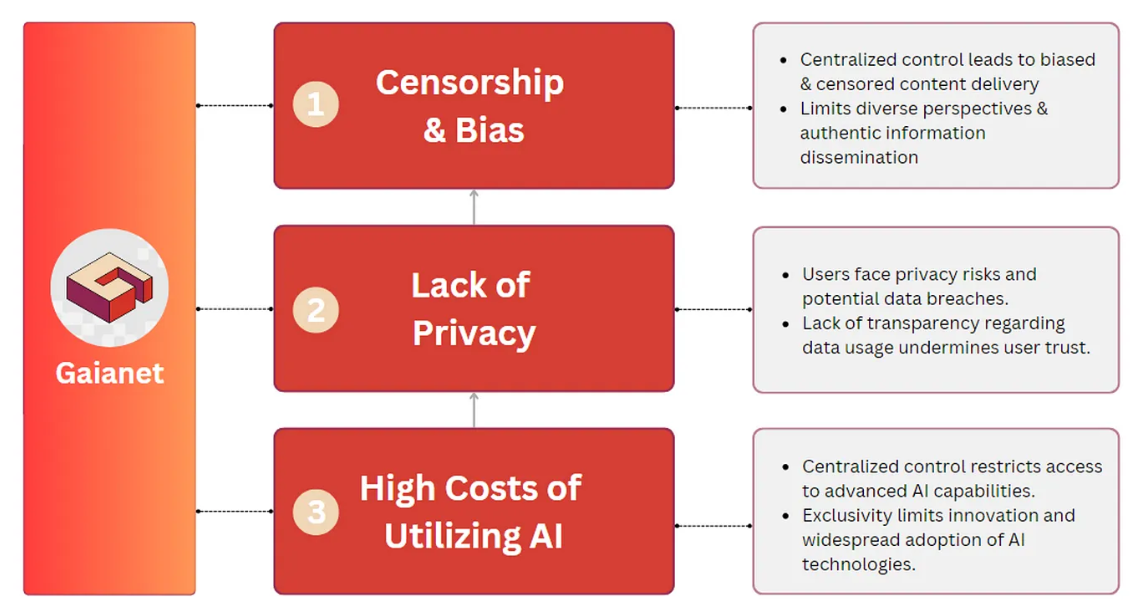
GaiaNet addresses these challenges through its decentralized architecture, which enables users to create personalized AI agents based on their unique expertise. The solution includes several key features:
- Decentralization: By distributing control across numerous nodes, GaiaNet enhances resilience against system failures and reduces risks associated with centralized data storage.
- Customizability: Users can tailor their AI agents using fine-tuned models and domain-specific knowledge, resulting in more relevant and accurate responses.
- Enhanced Privacy: The decentralized nature of GaiaNet ensures that user data remains secure and private, minimizing the risks associated with data breaches in centralized systems.
- Community Engagement: GaiaNet domains facilitate user collaboration by providing public-facing URLs that promote agent services within specific communities.
Through these innovative solutions, GaiaNet aims to redefine human-AI interaction by making advanced AI capabilities accessible while preserving user autonomy and fostering ethical practices in technology development.
Market Analysis
The Crypto AI Agent market has emerged as a rapidly growing and dynamic segment within the cryptocurrency ecosystem, marked by significant volatility and innovation. As of January 2025, the market capitalization of AI agent tokens is estimated at approximately $11.3 billion, reflecting the sustained interest in their transformative potential. The integration of AI technology with blockchain is viewed as a promising pathway for innovation, enabling the deployment of intelligent agents capable of performing complex tasks autonomously. Advances in AI capabilities have further propelled this growth, making such deployments more feasible and impactful.
Market sentiment within the crypto community remains highly favorable toward AI technologies, fueling both investment and development in AI agent projects. These agents are being employed across diverse sectors, including finance, trading, and social media, significantly enhancing their utility and appeal to investors. Projections indicate that by the end of 2025, the number of operational AI agents could exceed one million, signaling widespread adoption across multiple platforms. While decentralized finance (DeFi) currently dominates their use, AI agents are expected to expand into other areas, such as entertainment and interactive applications, broadening their impact.
Features
- Decentralization of AI Development – GaiaNet provides a decentralized infrastructure for hosting AI models and applications on distributed nodes. This approach eliminates single points of failure and reduces risks associated with centralized systems, such as censorship, data breaches, and outages. Developers can use GaiaNet’s open-source tools to run large language models (LLMs) on local hardware, granting them full control over their AI systems. By decentralizing AI development, GaiaNet empowers individuals and organizations to operate independently of large technology providers.
- Incentivizing Contributors and Creators – GaiaNet employs a tokenomics-based model to reward knowledge contributors, model developers, and node operators. This economic framework ensures fair compensation for all participants who add value to the network, whether through data, models, or computational resources. Developers can build specialized AI agents that leverage their expertise and proprietary knowledge, creating monetization opportunities. This system provides independent developers and smaller businesses—often constrained by limited resources—the tools needed to compete effectively with larger corporations.
- Transparency in Domain Knowledge – GaiaNet prioritizes transparency by enabling users to trace the origins of data and models, ensuring clarity in how AI outputs are generated. The decentralized nature of the network allows for auditing and verification of node activity, contrasting with centralized systems that often lack visibility into underlying data and processes. Specialized domains within GaiaNet curate high-quality, domain-specific knowledge, requiring participants to stake resources to operate. Penalties for low-quality contributions ensure that standards remain high and the network retains its credibility.
- Specialized AI Modeling – GaiaNet facilitates the development of specialized AI models tailored to specific domains or use cases, distinguishing itself from general-purpose AI chatbots designed for broad applications. Gaia agents can be customized with unique prompts, data sources, and external tools, resulting in highly accurate, context-aware AI solutions. These specialized models are also more efficient, requiring less data storage and computational power than traditional chatbots that store large volumes of generalized data.
- Scalability Through Domains – GaiaNet organizes its nodes into domains, each focused on a particular field or service. This structure supports efficient load balancing, routing user requests to the most suitable nodes within a domain. Domains act as clusters of expertise and can scale horizontally by adding more nodes, enhancing computational capacity and domain-specific capabilities. For businesses and users, this domain-based model ensures reliable and high-quality services. Whether interacting with domains focused on healthcare, legal assistance, or other areas, users can trust they are accessing AI agents tailored to meet their specific needs with precision and reliability.
Token
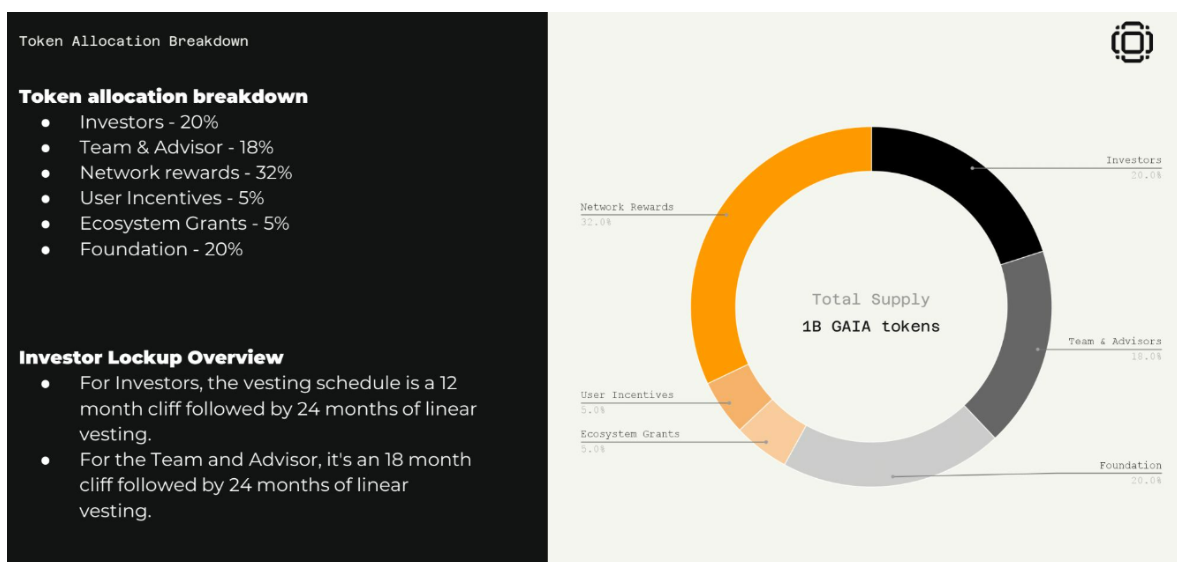
The GaiaNet token functions as a utility token integral to facilitating transactions, enabling governance, and fostering trust within the network. It fulfills three key roles. First, as a DAO governance token, it empowers holders to actively participate in establishing and modifying the network’s rules. Second, as a staking token, it allows holders to vouch for the credibility of domain operators. Stakers receive a share of the domain operator’s service revenue but face potential slashing if the operator engages in misconduct, such as disseminating misinformation or delivering unreliable services. Finally, as a payment token, it can be deposited into a domain’s escrow contract to facilitate payments for services over time.
The token’s payment utility is strategically designed to balance network supply and demand. Its value is dynamically determined at the point of entry or exit from the escrow smart contract, based on real-time exchange rates. This mechanism ensures a transparent and efficient financial model that supports the stability and functionality of the GaiaNet ecosystem.
Investors

Team
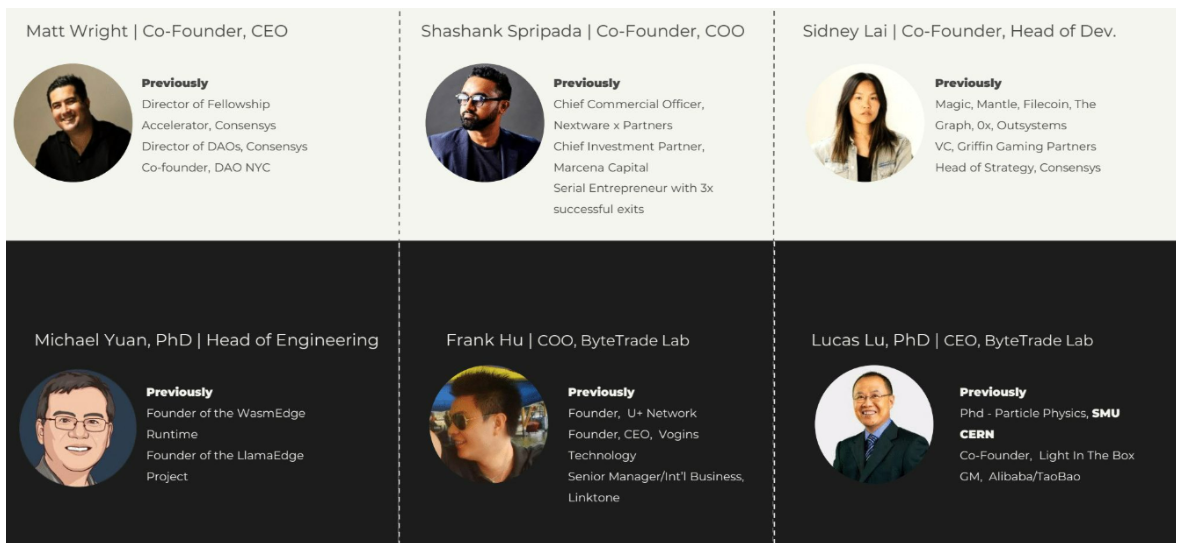
Conclusion
Gaia is at the forefront of creating a more equitable digital future, striving to eliminate the dominance of a few corporations and ensure that access to knowledge and economic benefits is distributed more fairly. This initiative empowers individuals and organizations to retain ownership and control over their data, fostering a sense of autonomy in an increasingly interconnected world. By prioritizing user rights, Gaia aims to shift the balance of power from centralized entities to the individual, promoting a more democratic approach to technology.Gaia’s commitment to democratizing access to artificial intelligence is built on the principles of decentralization, transparency, and inclusivity. The platform fulfills this promise through a robust infrastructure that includes economic incentives, domains for enhanced discoverability, and decentralized nodes. This framework not only democratizes access to AI agents but also safeguards individual privacy and intellectual property rights, fostering an environment where knowledge can be shared securely and responsibly.
Furthermore, Gaia’s innovative approach encourages collaboration among users and developers, creating a vibrant ecosystem that nurtures creativity and innovation. By providing tools and resources that enable users to build and deploy their own AI agents, Gaia cultivates an atmosphere of empowerment and engagement. This inclusive model ensures that diverse voices are heard and represented in the development of AI technologies.
| Fundamental Analysis | |||||
| Max score | Options | Score | |||
| Problem | 10 | Significant, long-term problem | 9 | ||
| Solution | 10 | Distinct, defensible solution | 9 | ||
| Market Size | 10 | Large market, significant growth potential | 8.5 | ||
| Competitors | 10 | High competition, but room for differentiation | 7 | ||
| Use case | 10 | Use case with good potential | 8.5 | ||
| Current Traction | 10 | Early traction, user engagement starting to grow | 6 | ||
| Unit Economics | 5 | Unit economics currently negative, no clear path to profitability | 1 | ||
| Tokenomics | 10 | Basic token strategy, potential for improvement | 7 | ||
| Product Roadmap | 5 | Basic roadmap, lacks detail or innovative features | 2 | ||
| Business Model | 10 | Business model with some potential, but improvement needed | 7 | ||
| Go-to-Market Strategy | 5 | Solid GTM strategy, clear target market and channels | 4 | ||
| Community | 5 | Acive and growing community | 4 | ||
| Regulatory Risks | 5 | Minimal regulatory risk, strong mitigation and adaptability | 5 | ||
| Total Score | 74.29% | ||||

